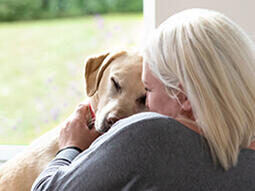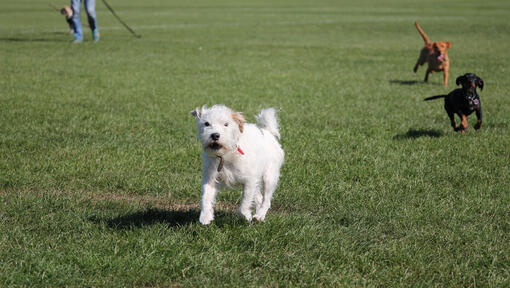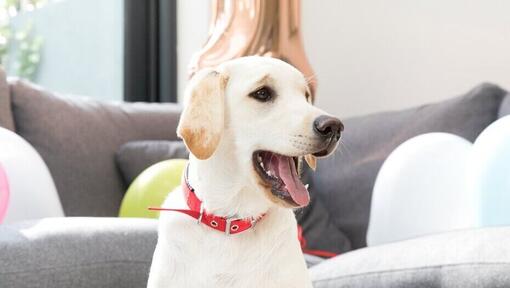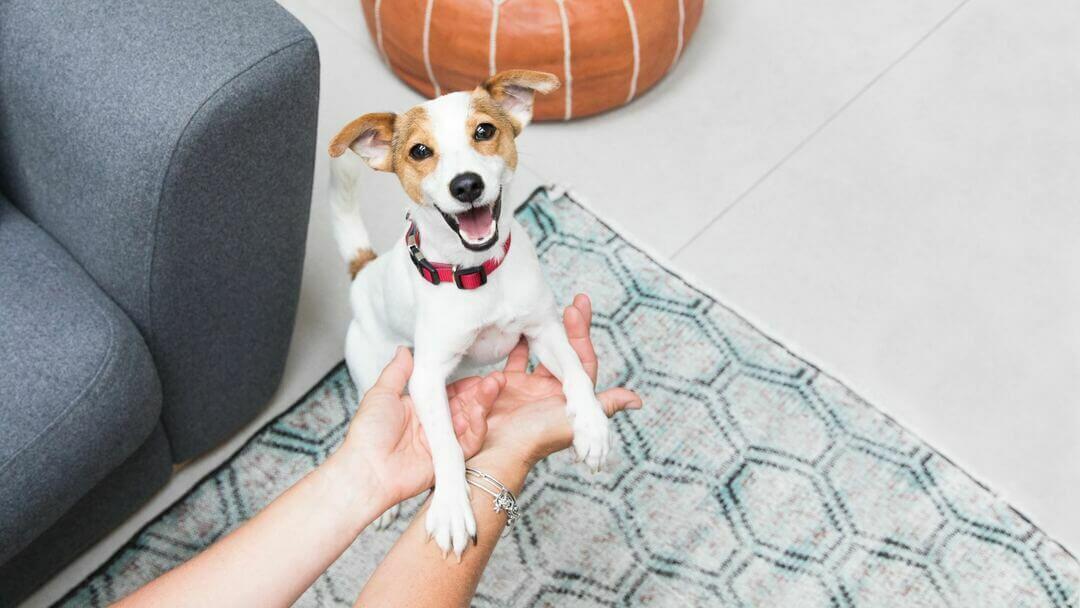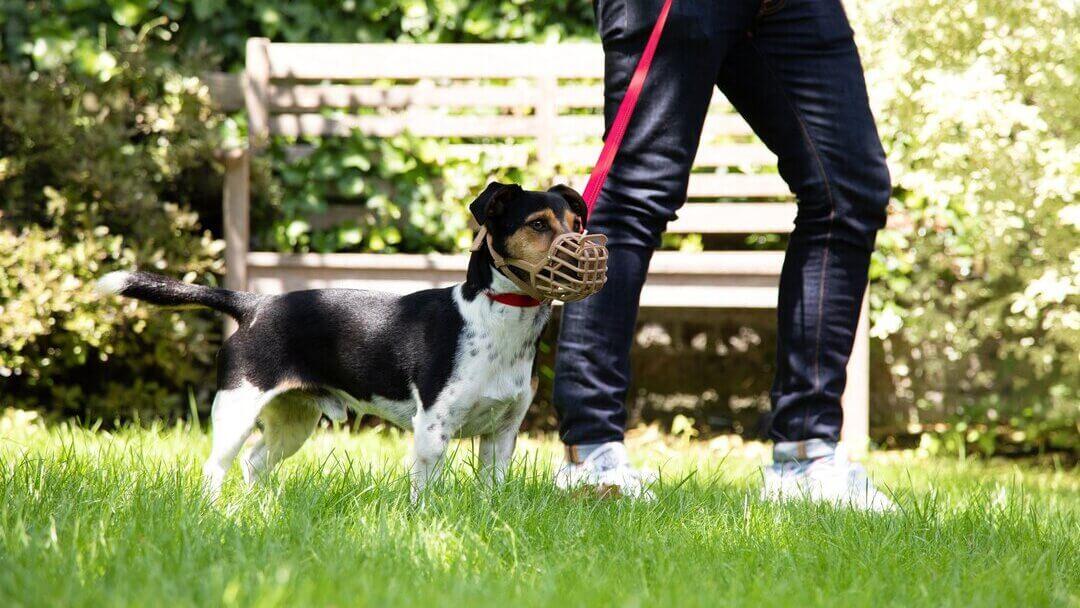
Dogs don’t rely on vocal communication in the same way humans do, but barking still forms a major part of the way they express themselves and their emotions to other dogs – and to their human family.
Even though some will be more talkative than others, all dogs bark. Whether you have a tiny Chihuahua or a fully-grown German Shepherd, you’ve probably heard them barking in a wide variety of situations. However, there might be times when you feel it is getting too much and you find yourself wondering why that happens and how to stop a dog barking, either in the house or in other environments. Here’s what you should know:
Why do dogs bark?
Whatever causes your dog to bark, it has one purpose: to communicate what they are feeling.
In the same way that babies don’t cry for no reason, dogs do not bark for no reason either. If you find them barking excessively, the best thing to do is to try and identify the cause which might include any of the following:
1. They have a lot to say for themselves
There is no doubt that some breeds or types of dogs are noisier than others. When you are doing research on which breed will best fit into your lifestyle, this is something you need to research and take into account if you have close neighbours – or if you don’t like noise. Just like talkative people, you are not going to change their personality and who they are, so make sure you talk to people who have your chosen breed, and take advice from owners, before you bring home a talkative pup.
2. They’re trying to alert you
One of the reasons dogs and humans have lived together so successfully over centuries is that dogs are very aware of strangers in their territory, and even the tiniest can make excellent early warning systems and burglar alarms!
Some dogs do this because they are territorial whereas others do it because they are fearful of strangers and want to make sure we know about the impending danger. Others do it for fun because they’re bored and someone walking past or coming to the door is the most exciting thing that's happened in a while!
3. They’re just having fun
If you’re in the middle of a game, your dog might bark to show that they’re having a good time or because they’re getting impatient for you to throw a toy that they want!
4. They’re joining in with the behaviour of another dog
Barking is a great social activity for dogs. Households with multiple pets can get noisy very quickly. If you’ve got more than one dog, it doesn’t take much for one to set another off – even if they don’t know why they’re barking!
5. They’re too excited – or stressed
Some dogs, especially if bored, can become over-earoused by external stimuli, and might continue to bark long after the postman has left and take a long time to settle. Others who are more worried by novelty and/or who are living in a highly stimulating environment, can end up in a constant state of stress and so the tiniest noise will set them off. This can be troublesome if you have neighbours close by but it isn’t good for your dog either.
6. They’re suffering from separation anxiety
If the barking is happening when you leave your dog, this is a symptom of a separation related behaviour issue where your pup is anxious or unable to cope with being left alone, Make sure you read our guide about the symptoms and solutions to separation anxiety in dogs and consult a behaviourist who can help you put a behaviour modification plan in place to help with this.
How to stop a dog barking in the house
There are several things you can incorporate in your daily routine to try and minimise, or control, your dog’s barking in the house. Here are just a few ways you can prevent your dog from barking excessively at home.
Add more exercise to your dog’s routine
Many dogs bark because they are bored or frustrated – so review how much exercise your dog gets, and how many times a day they get to go out and about with you.
Several shorter walks can often be better than one long one – as theyit breakaks up the day better.
It’s not just physical exercise your dog needs though. They also need a chance to use their brains and problem- solving abilities – so introduce training and games into your daily routine. and Oof course, they also need social company – so make sure you are giving your dog plenty of quality time with you.
Make sure your dog gets plenty of enrichment opportunities too. There are lots of toys on the market that can help with this – or you can make your own.
There are plenty of dog sports you can enjoy with your pet too so if you think your dog is bored, maybe look at getting involved with things like agility classes, scent work classes, or of the many activities you and your dog can do together.
Limit access to windows and fences
Pet owners might not even notice cars driving by, small animals in the garden, or every passer-by, but chances are your dog is fully aware of everything that’s going on outside their home and is keen to let everyone in the family know as well.
This is why removing outside stimuli might help stop your dog from barking excessively. Try closing the curtains, limiting their access to windows, fences and glass doors, or using stick on glass frosting so that they can’t get up over anything they see outside, even if it’s just a car driving past.
Teach your dog the ‘speak and shush’ technique
For those dogs who love to bark, giving them a chance to have a good shout from time to time is going to be necessary – but you need to teach them to have an ‘off switch’ too! Training this usually involves the ‘speak and shush’ technique, which, perhaps confusingly, is best done by encouraging them to bark on a cue word.
Here’s how:
- When they do, use a cue word (such as ‘speak’) and encourage their barking (you could even join in if you want to!).
- After your dog has had a good bark to alert you that there is someone at the door, take a treat from your pocket and hold it close to your dog’s nose so they can smell it.
In order to sniff it and then to eat it, your dog has to stop barking. The minute they do, say “quiet’ and give them the treat.
Keep repeating this at different times of the day, and in any situations where your dog might bark
Eventually, you can leave a longer gap between saying ‘quiet’ and giving the treat.
As long as you practise this frequently and consistently, before long, you will have a dog who barks when you say ‘speak’ and a dog who stops when you say ‘quiet’ (most of the time!).
However, be aware that barking, and guarding territory is a natural behaviour – it isn’t your dog being ‘bad’ or ‘annoying’.
Ignore the barking?
When dogs are looking for attention they may start pestering their human family by barking.
Start by thinking if your dog has every right to try and get your attention. Do they need the toilet? Are they thirsty? Have you forgotten dinner time? Have you missed walk time? Have you been ignoring them all day? Are they bored with no enrichment?
There is always a reason for barking – and it might well be that it is you who is at fault.
If, however, it is inappropriate, ignore the barking and replace the behaviour with something else that is incompatible with barking – but that is more rewarding (such as a stuffed enrichment toy).
Do spend some time teaching your dog to settle and chill out – as that is an important life skill that all dogs need to learn.
If your dog is barking when left alone, you need help from a behaviourist.
Ask dog behaviourists for help
If nothing seems to reduce your dog’s barking and there’s no underlying medical issue, your vet can refer you to a dog behaviourist who may be able to help.
Whether this is caused by over-stimulation, separation anxiety or your dog is just overly excited and hasn’t found the off switch yet, these professionally-trained experts will figure out a way to help you get your dog to calm down and reduce excessive barking.
Why do dogs bark in the car?
Dogs barking in cars is a common issue. They may bark to protect their temporary territory (especially if the car is parked and people are walking past), because they’re over-aroused or worried by all the fast-moving objects whizzing by.
Or it's simply because they know a car journey signifies an exciting trip to the park, or perhaps a less exciting trip to the vet!
How to stop a dog barking in the car
Start by looking at where in the car your dog travels – and if possible, preventing them from seeing passing people or traffic. Window blinds can be useful for this.
If you have got into the habit of only putting your dog in the car to go exciting places, spend some time just putting them in, driving to the end of the road and back, and then taking them out again! Teach them that not every outing is exciting – and that most are dull!
If you’ve mastered the ‘speak and shush’ technique at home but your dog is still shouting in the car, you might need to take further steps to make the car seem more normal and commonplace, so it’s not just associated with excitement.
A good approach on how to stop a dog barking in the car can be to let them sit in the car with a chew toy. Keep the engine off to begin with, then do the same with the engine running. Once your dog can sit quietly in the car with the engine on, go for a very short drive while they are still distracted by chewing.
This will require some time and patience but persevere!
Don’t let your dog barking distract you when driving, however, and if you think that is a possibility, you might need to bring a friend with you to help train your dog to be quiet in the car.
Common mistakes owners make dealing with excessive dog barking
The go-to response for many owners of barking dogs is to shout a bit louder, telling them to be quiet, but this can make your dog feel anxious or worried, or they might think that you’re simply barking along with them.
There are lots of products on the market designed specifically for excessive dog barking, such as anti-bark collars that administer a slight electric shock or a nasty spray. We, most definitely, do not recommend these as they’re inhumane and deeply unpleasant, and suppress your dog’s natural behaviour and need to communicate. Plus, smell spray collars continue to punish your dog long after they stop barking as the smell will linger in their very sensitive nose. In certain countries, including parts of the UK, these can be illegal.
These punishing types of collars won’t deal with the underlying cause of the barking and your dog will take their frustrations out in other ways, such as chewing the furniture, or even themselves – or aggression. Instead, try to find out why your dog is barking. Is it to warn you about something? Are they barking out of frustration or boredom, or in order to get your attention? Are they barking because they’ve been left alone and they’re stressed or trying to call you back? Once you’ve identified the cause, you can get to work on training techniques that will help tackle the problem in the long term.
What to do if the excessive dog barking persists
If you really can’t figure out why your dog is barking so much, or if their vocal habits change suddenly, it’s definitely worth having them checked over by your vet just to make sure there’s no other underlying clinical reason for the barking before seeking advice from a behaviourist.
Now that you know why and how to stop a dog barking, find out more about the dog behaviour or what different types of dog growl mean.

